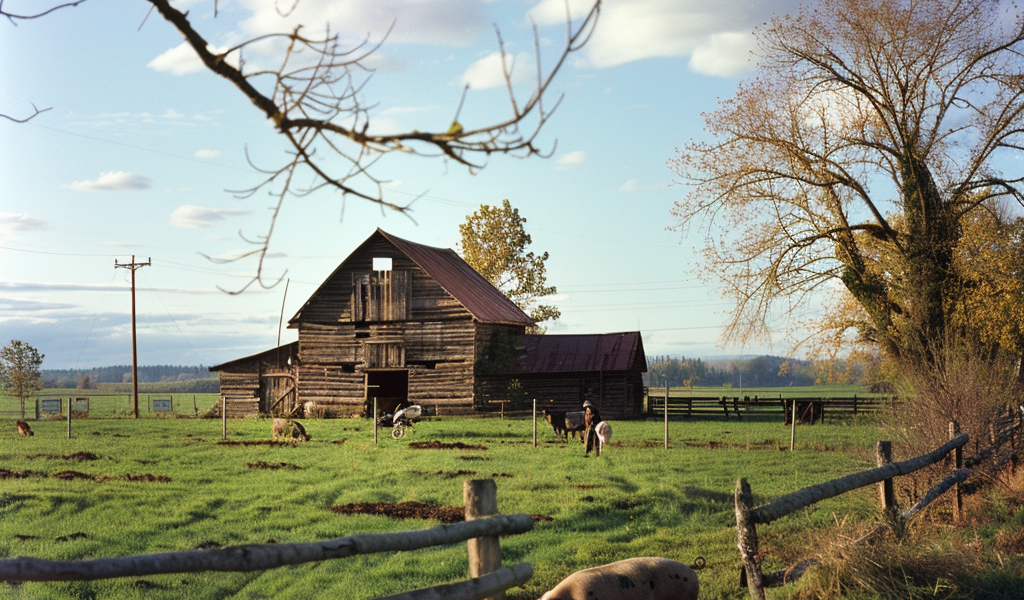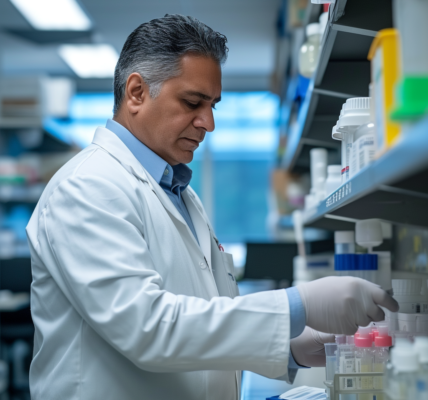In a significant development concerning livestock health, the National Veterinary Services Laboratories (NVSL) has confirmed the presence of Highly Pathogenic Avian Influenza (HPAI) in a pig on a small farm located in Crook County, Oregon. This confirmation marks a critical moment in the ongoing battle against avian influenza, particularly as it pertains to livestock health and biosecurity.
According to reports, a total of five pigs were residing on the farm, and the NVSL has confirmed HPAI in one of these animals. Results from tests conducted on the remaining four pigs are still pending. This particular farm previously gained attention when the Oregon Department of Agriculture (ODA), in collaboration with the U.S. Department of Agriculture (USDA), took proactive measures to contain the virus by humanely euthanizing 70 backyard birds that had tested positive for HPAI just last week.
In response to the confirmed case in the pig, Dr. Ryan Scholz, the State Veterinarian for Oregon, promptly placed a quarantine on the property. The ODA’s veterinary team is now conducting thorough surveillance to monitor the situation and prevent any further spread of the virus.
While the detection of HPAI in pigs is concerning, it does not come as a complete surprise given the previous findings on the premises. It is noteworthy that all five pigs, alongside the 70 affected birds, were humanely euthanized to mitigate the risk of the highly contagious virus spreading further. Importantly, none of the animals involved entered the food supply chain, nor were they intended for commercial sale.
Health experts emphasize that when poultry and livestock products are properly prepared and cooked, HPAI does not pose a risk to meat or egg products, which remain safe for consumption. The U.S. Centers for Disease Control and Prevention (CDC) also advises consumers to choose pasteurized milk and dairy products as a precautionary measure for health safety.
HPAI is recognized as a serious disease, and the response from ODA, USDA, the Oregon Health Authority (OHA), and Crook County Public Health has been swift and in accordance with established One Health response protocols. These protocols involve a series of critical actions including:
- Implementing quarantine restrictions to contain the virus.
- Humanely euthanizing affected flocks and animals to prevent further spread.
- Disposing of infected birds and animals in a safe manner.
- Cleaning and disinfecting affected premises to eliminate the virus.
- Conducting ongoing surveillance to monitor the situation.
- Monitoring individuals who have been exposed to infected animals.
In addition to the governmental response, the ODA has supplied animal owners with personal protective equipment (PPE) to ensure their safety while handling animals on the affected farm. Furthermore, Crook County Public Health and the OHA are actively educating and monitoring individuals who may have been exposed to the infected animals.
As part of the broader efforts to contain HPAI, bird and livestock owners are encouraged to adopt stringent biosecurity measures. Some recommended practices include:
- Preventing domestic poultry and livestock from coming into contact with wildlife, particularly wild waterfowl, which are known carriers of the virus.
- Limiting the co-mingling of domestic birds and livestock with other animals.
- Regularly cleaning and disinfecting equipment, clothing, and footwear that may come into contact with animals.
- Monitoring flock health and reporting any unusual illnesses or deaths to local agricultural authorities.
These proactive measures are essential for safeguarding not only the health of livestock but also the broader agricultural community. As the situation develops, ongoing communication from health authorities will be crucial in keeping the public informed and ensuring that appropriate measures are taken to mitigate the impact of HPAI.
In summary, the confirmation of HPAI in a pig in Oregon highlights the importance of vigilance and rapid response in managing animal health threats. As authorities work to contain the outbreak, the cooperation of livestock owners and adherence to biosecurity protocols will play a vital role in preventing further spread of the virus.





